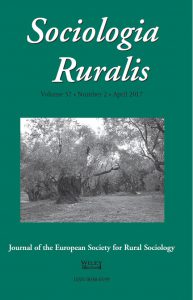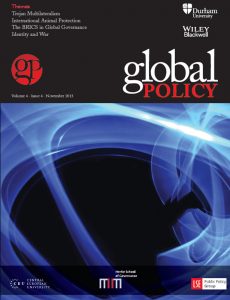Taking Advantage of "Breaking News"
[youtube=http://www.youtube.com/watch?v=4jUq_HBtydA]
by NickieWild
Who determines what “news” is? Can we define news as “that which gets talked about,” as Katz and Lazarsfeld wrote about in Personal Influence in 1955? Or are there more strict criteria that are (or should be) observed in the modern media environment? Last year, I wrote about “Martin Eisenstadt,” a fake member of a fake think tank who managed to convince the mainstream media that Sarah Palin did not know that Africa was a continent, and not a country. Although this amusing lie was discovered, and the news organizations responsible (like the LA Times and MSNBC) admitted they had been “had,” Sarah Palin’s campaign for Vice President spent a lot of time and energy trying to disavow the accusations.
News hoaxing was again in the media this month with the now-infamous “balloon boy” hoax, wherein the major cable news networks covered a story that turned out to be a mere publicity stunt. They even cut to the chase of the balloon in the air in lieu of covering the President speaking in New Orleans. The need for constant “breaking news” and the need to fill air time make it even more likely that media-savvy publicity hounds and hoaxsters will use these things to their advantage. In fact, one of the main reasons law enforcement and the public became suspicious that the balloon stunt was a hoax in the first place was because the father, Richard Heene, called the news media before the police to report that his son was missing, and presumed sailing through the air.
The major mistake that these people made was their hoax involved the use of government and police resources, and interrupted commercial aviation traffic at the nearby airport. Additionally, public opinion was turned against them due to the fact that they compelled their child to lie to further the deception. However, if this was not the case, it may have been regarded as a highly
successful use of news reporting practices for their own gain. We can expect to see more of this. People will learn from the Heenes’ mistakes, and continue to use media routines like breaking news to their advantage.
“Rumor” by Pascal Froissart


















1540-6237/asset/SSSA_Logo-RGB.jpg?v=1&s=c337bd297fd542da89c4e342754f2e91c5d6302e)
Thinking about the intended functions of media in a democracy, I cringe to think of the impact of “news” on American political society. This compares, strikingly, to societies where knowledge of the news is survival.
Thanks for a thought provoking post.
Keri